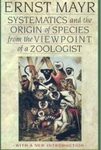![Coyote Valley Coyote Valley]()
Click to have a closer look
About this book
Contents
Customer reviews
Biography
Related titles
About this book
What can we learn from a high-country valley tucked into an isolated corner of Rocky Mountain National Park? In this pathbreaking book, Thomas Andrews offers a meditation on the environmental and historical pressures that have shaped and reshaped one small stretch of North America, from the last ice age to the advent of the Anthropocene and the latest controversies over climate change.
Large-scale historical approaches continue to make monumental contributions to our understanding of the past, Andrews writes. But they are incapable of revealing everything we need to know about the interconnected workings of nature and human history. Alongside native peoples, miners, homesteaders, tourists, and conservationists, Andrews considers elk, willows, gold, mountain pine beetles, and the Colorado River as vital historical subjects. Integrating evidence from several historical fields with insights from ecology, archaeology, geology, and wildlife biology, Coyote Valley simultaneously invites scientists to take history seriously and prevails upon historians to give other ways of knowing the past the attention they deserve.
From the emergence and dispossession of the Nuche – "the People" – who for centuries adapted to a stubborn environment, to settlers intent on exploiting the land, to forest-destroying insect invasions and a warming climate that is pushing entire ecosystems to the brink of extinction, Coyote Valley underscores the value of deep drilling into local history for core relationships – to the land, climate, and other species – that complement broader truths. Coyote Valley brings to the surface the critical lessons that only small and seemingly unimportant places on Earth can teach.
Contents
List of Illustrations
Map: Rocky Mountain National Park and the North American West
Introduction: Coyote Creek
I. Native Peoples
1. Emergence
2. Endurance
3. Dispossession
II. Settlers
4. Miners
5. Farmers
6. Conservationists
III. Feds
7. Common Ground
8. Restoring the Valley Primeval
9. The Tragedy of the Willows
Conclusion: Seeing the Forest and the Trees
Notes
Acknowledgments
Index
Customer Reviews
Biography
Thomas G. Andrews is Associate Professor of History at the University of Colorado Boulder.
By: Thomas G Andrews(Author)
324 pages, 25 b/w illustrations, 4 maps
"In this gracefully written, insightful, deeply researched history of an under-studied part of North America, Andrews tells a story of the fracturing of an environmental order. The chronological scope and interdisciplinary breadth of the work are impressive. This is environmental history at its best."
– Andrew Isenberg, author of Wyatt Earp: A Vigilante Life
"Andrews has followed up his Bancroft Prize–winning Killing for Coal with an exquisitely wrought portrait of an out-of-the-way place that must be central to our understanding of the American West's past, present, and future: the headwaters of the Colorado River in what today is Rocky Mountain National Park. Coyote Valley is brilliant and beautiful, a must-read for anyone interested in the complex history of the nation's iconic landscapes."
– Ari Kelman, author of A Misplaced Massacre: Struggling over the Memory of Sand Creek
"Those interested to learn how historians now write about the ever-changing dynamics among people, nature, and culture need look no further than this book. Coyote Valley defines the cutting edge of environmental history."
– Pekka Hämäläinen, author of The Comanche Empire


































